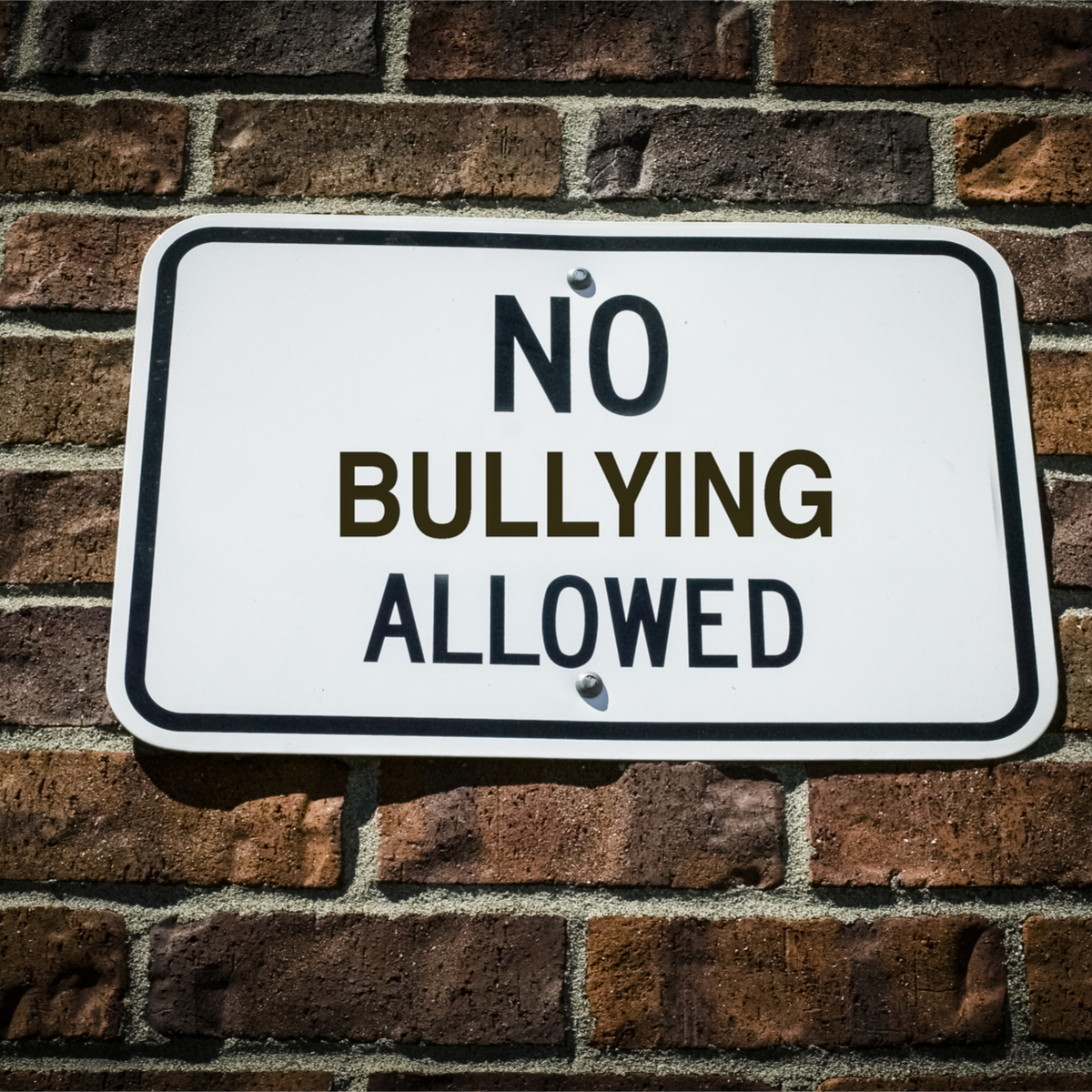Family Motto: No Tolerance for Bullying

As a school age child of the 1950’s and 1960’s, my generation of children frequently heard our parents as they taught us the phrase, “Sticks and stones may break my bones but names can never hurt me”. It was the sole shield of defense against bullies in school. In retrospect, perhaps it wasn’t as powerful of a shield as we thought it was, or it was a good defense because there was another defense mechanism occurring in the home at the time. There were grandparents, aunts, uncles, neighbors, spiritual family members and other family resources who were involved with children in the community. These individuals were the ‘wrap-around services’ in the old days. These individuals made up an extended family of sorts who were there with messages to children after school with ongoing comments such as, “Remember you are never better than anyone else, but you are every bit as good as anyone else”. They were the protectors of our sense of self and the team of individuals who taught us that hurting another individual for the ‘sport of it’ was sick and wrong. Bullies were not tolerated by others. Teachers protected children emotionally in the schools as did the community members. We, as children, learned to believe that bullies were individuals who were somehow to be pitied.
Today, we as a society want to blame cell phones, the Internet and computers for bullying. It is easy to blame school officials as well. However, it may be more accurate to see the problem of bullying as something that we all contribute to and that there is a shared responsibility in making it stop. Bullying begins when a child or youth believes that he is ‘better than’ and someone else is ‘less than’. We as adults are the ones who shape children’s beliefs about that concept. It is not something that forms naturally; it is a “taught” concept. When we, as adults, look at our world and comment about something in the home or at work, how often do we put it in those terms? This political party, religion, skin color, sports team, etc., is ‘better than’. This political party, religion, skin color, sports team etc., is ‘less than’. These opinions are formed and discussed throughout offices, in the home, in the teachers’ lounges and in our community associations. The opinions vary in topics but it always seems to come down to a judgment of something or someone being better or less than something or someone else.
Youth are playing the same game in an arena of relevancy to them. A girl wearing Old Navy is better than a girl wearing clothes from Wal-Mart. A girl weighing 110 lbs. is better than a girl weighing 160 lbs. A boy on the football team is better than a boy on the chess team. And the list goes on. The only difference in the adolescent world is that the focus tends to be on physical appearance and the belief that one is only ‘better than’ if the group in power agrees that you are ‘better than’. Developmentally, youth lack judgment, reasoning and the skill of diplomacy. They also believe that they have the right to say everything that they think and feel at any given moment without an ability to see or care about the human suffering their words and actions cause another human being.
We as a society are not as strong as we once were by having the extended family and community resources available to deflate a bully’s power or to reinforce a child’s positive sense of self once he has been teased at school. However, as adults we can be good advocates for our children in the school system. We, as adults, can monitor how we discuss our ideas of ‘better/less than’ with children present. We can intervene with youth and children when we overhear their comments and gossip about other youth or children. As adults we can begin to point out to our youth and children how frequently a comparison is being made on television on the idea of ‘better or less than’. As adults we can teach empathy and compassion to our children. As adults we have the right to check over our youth’s cell phones, text messages and go into their computer memories to see what the emails are saying. We have the power to send a clear message to our own youth that they belong to a family unit where there is a zero tolerance for bullying.
Tags:
family rules - no bullying,
no bullying

